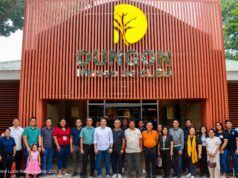CLARK FREEPORT – Clark International Airport Corp. (CIAC) President-CEO Emigdio Tanjuatco III has assured the public that the airport here remains safe despite the total breakdown of the Distance Measuring Equipment (DME) which relay to pilots data on his incoming aircraft’s distance from the runway
“Airport operations are still safe without the DME from the ILS because we still have DME data derived from the Clark DVOR (VHF Omni Directional Radio Range),” Tanjuatco said in a text message to Punto. DVOR is a type of short-range radio navigation system that transmit radio signals to aircraft. Tanjuatco stressed, however, that “the DME system will have to be replaced immediately to make the DME data more precise and since the DME from DVOR is currently operating on a single system only.
”This is the reason why the CIAC board decided last Friday to award to Evercon Builders and Equipment Corp. (Evercon) the P225-million Instrument Landing System (ILS) project, said reliable source from CIAC who spoke on condition of anonymity. “As a matter of fact, we are checking reports that because our DME is not functioning, American pilots of Asiana have refused to fly into Clark and only Korean pilots are replacing them,” said the source.
The DME is part of the ILS system which also includes the localizer which relays to incoming aircraft data on the center of the runway, and the gradient slope equipment which relays data on the angle the pilot should adopt in touching down his aircraft. The lifespan of ILS is usually from 10 to 15 years, but Clark’s ILS is now 18 years old. Tanjuatco also said that “as a contingency, CIAC also requested CAAP (Civil Aviation Authority of the Philippines) to prepare the RNAV/ GPS approach procedures for Clark airport.”




